May 6, 2024 | 01:56 GMT +7
May 6, 2024 | 01:56 GMT +7
Hotline: 0913.378.918
May 6, 2024 | 01:56 GMT +7
Hotline: 0913.378.918
Ha Van Thang, Chairman of T&T 159 Hoa Binh Joint Stock Company said the basic principles in the circular economy include reusable design, flexibility thanks to diversity, using energy from inexhaustible sources, critical thinking and biological background.
He said it is necessary to build a number of pilot models with the participation of the collective economy (co-operatives) associated with the private economy (businesses in co-operatives) in order to deploy the circular economy model in agriculture.
It will help to develop the ecosystem for the agricultural production zones, he said.iểu
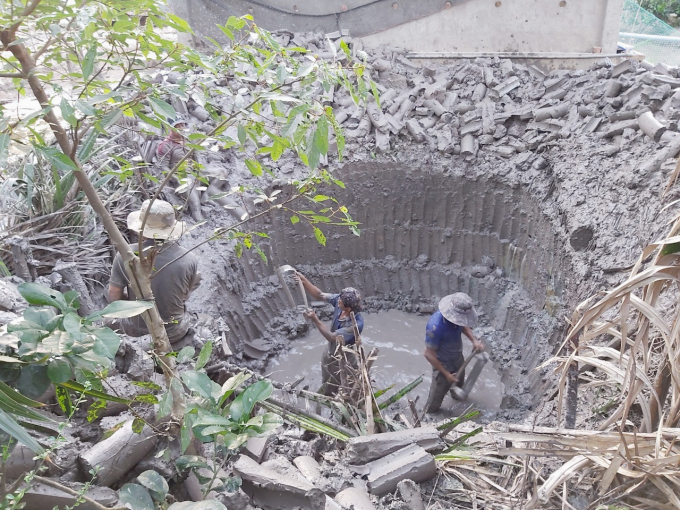
Workers build a biogas tunnel in livestock waste treatment. Photo: TL.
In the ecosystem, businesses play a key role, they are the backbone and the centre of the core region, leading the market of product supply and consumption as well as providing technical services, logistics and processing, he said.
At the same time, it should expand the linkage of production zones by region and industry to connect and develop the circular economy, he said.
In the linkage, the by-products of one unit will be used as input materials for the other unit, he said.
Besides, it needs to promote dissemination and raise public awareness of circular agricultural models to be ready to participate and implement effectively, he added.
Also at the forum, a representative of the Agricultural Extension Centre of Phu Tho Province said we should encourage farmers to make organic soil by leaving cassava leaves, corn and tea leaves for the soil after harvest as well as increase processing of by-products such as sawdust into organic fertilisers used in agriculture.
He also said that another solution is applying new techniques to produce fertilisers from manure and livestock waste and gas from biogas tunnels as raw materials for farming other objects to close the production cycle.
Additionally, it needs priority policies for businesses that invest, exploit and process agricultural by-products to create organic fertilisers and substrates; promote advanced and environmentally friendly production processes; building and replicating models of using mixed animal feed, using biological waste to replace antibiotics in livestock production, he said.
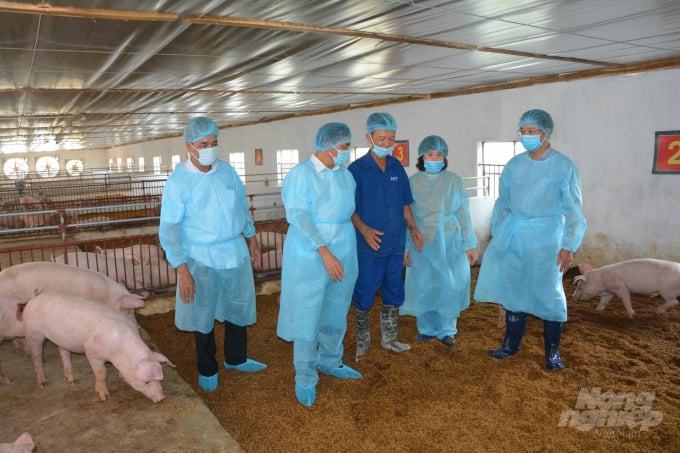
Circular agriculture in general and circular livestock in particular are a sustainable direction in the development orientation of the livestock industry. Photo: TL.
Nguyen Van Trong, Deputy Director of the Livestock Production Department said circular agriculture in general and circular livestock in particular are production activities without waste.
Applying traditional techniques and scientific advances to treat by-products and waste in the production process into useful values, and reuse in agriculture and contribute to environmental protection and regeneration are the sustainable directions in the development orientation of the livestock industry, he said.
Ha Thuy Hanh, Deputy Director of the National Centre for Agricultural Extension said developing circular economy has been a global trend while natural resources are increasingly depleted.
The circular economy is not only the reuse of waste, considering waste as a resource, but also the connection between economic activities in a calculated way, forming a cycle in the economy, she said.
The circular economy brings four specific benefits for sustainable development - saving resources, protecting the environment, promoting economic development and bringing many benefits to the society, she said.
The circular economy in agriculture is the process of agricultural production in a closed cycle, and the waste and by-products of the process are the input to other production processes through the application of scientific engineering, biotechnology and physicochemical technology, she said..
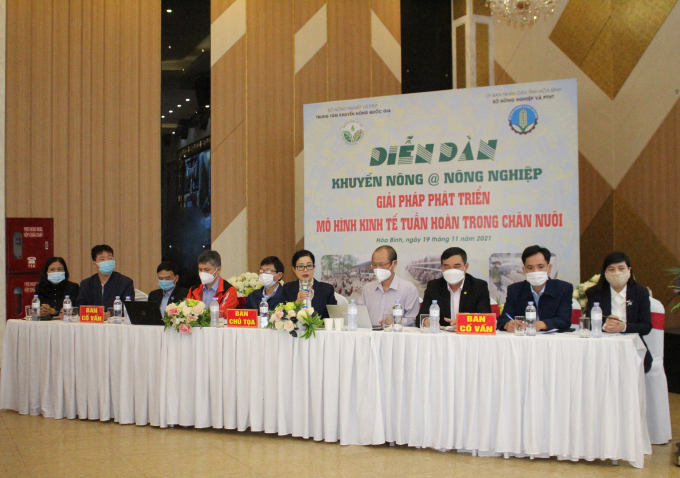
The forum gives answers to people and businesses about regulations and policies surrounding circular economy and circular agriculture. Photo: Trung Quan.
As a result, agricultural production will exploit and use resources in an economical and efficient manner, minimise waste and post-harvest losses, reduce and eliminate waste that causes environmental pollution, and protect the ecosystem and human health, she said.
Hanh said in Vietnam, the current understanding of circular economy in agriculture is incomplete.
However, a number of models associated with the circular economy have been appearing, creating opportunities for the circular economy in agriculture to develop such as the model of garden, pond and cage; the model of garden, pond, cage and biogas tunnel; the model of garden, pond, cage and forest; and the model of garden, pond and lake, she said.
Hanh also added that the development of the circular economy in Viet Nam is facing some difficulties.
The guidelines on the role, benefits, nature, content and criteria of circular agriculture are not clear, leading to vague and incomplete awareness of management agencies, businesses and people, she said.
Besides, agricultural production is still mainly based on natural exploitation, using pesticides and inorganic fertilisers, therefore, it has not created a motivation to apply circular economy in agriculture, she said.
Translator: Thu Hang
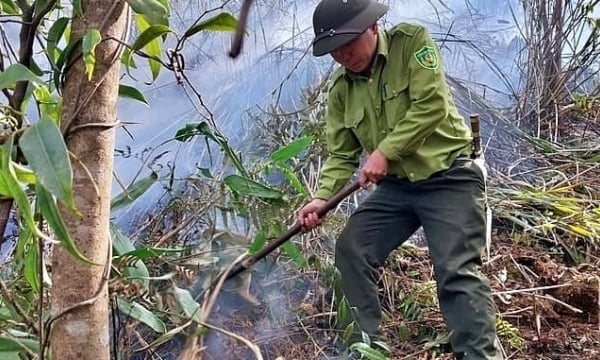
(VAN) In its forthcoming period of midterm public investment, MARD proposes prioritizing spending on forest protection and management, in addition to wildfire prevention and control.
/2024/05/05/5427-3-175100_730.jpg)
(VAN) 'MARD's proposal to build water-raising dams to regulate water levels behind Xuan Quan and Long Tuu sluices is based on the research results of three State-level scientific topics,' said Prof. Dr. Truong Dinh Du.
/2024/05/04/0940-1-145947_475.jpg)
(VAN) The Prime Minister requested MARD to proactively direct flexible solutions to remove difficulties, ensure production, and promote consumption and export of agricultural, forestry, and fishery products.
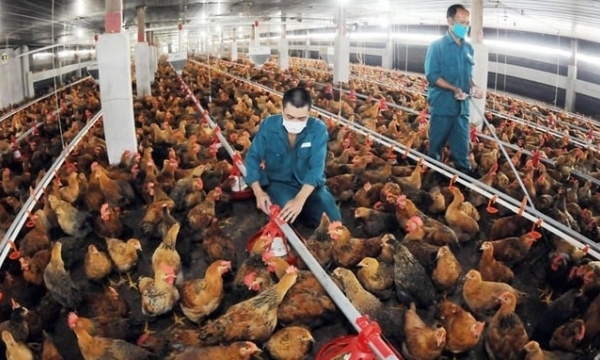
(VAN) Ministry of Agriculture and Rural Development held a conference to deploy some prioritized schemes to implement the Strategy for Livestock Development for the period of 2021-2030 with a vision to 2045.
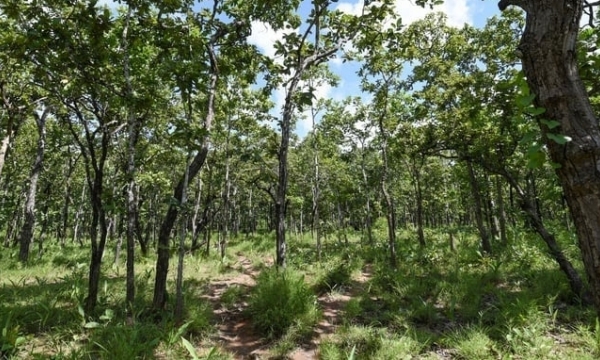
(VAN) The Ministry of Finance will coordinate with the Ministry of Natural Resources and Environment to finalize the project under Directive No. 13/CT-TTg issued by the Prime Minister on May 2nd.
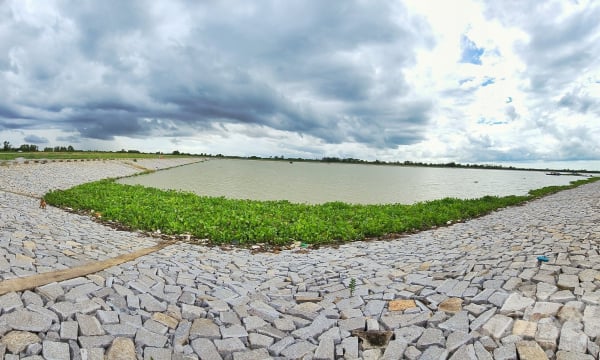
(VAN) Underground water – the huge freshwater reserves of Mekong Delta is facing the risks of salinity. The long-term solution to control and prevent the exploitation of underground water must be caculated.
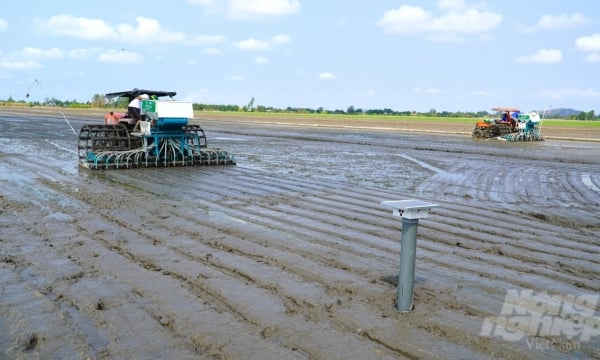
(VAN) In addition to technical support, farmers participating in the pilot model of the 1 million hectares of high-quality rice project will be supported with all materials and infrastructure.